Progressive Women of Eastern Europe want more cooperation
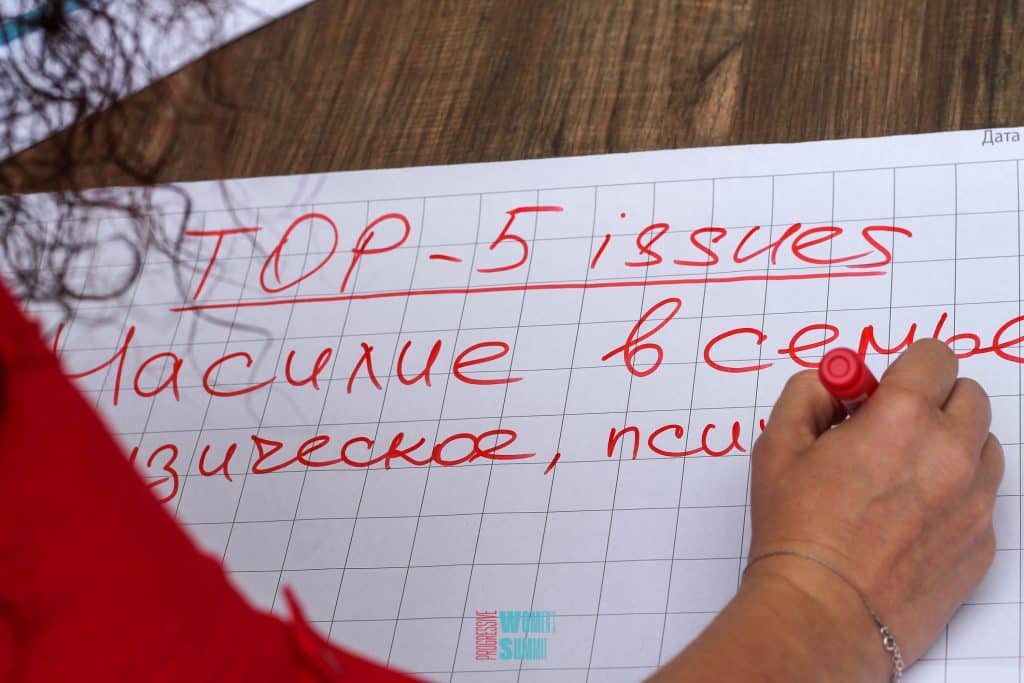
Last weekend, we organised the Progressive Women's Summit of Eastern Europe, together with the UK Labour Party and the Social Democratic Platform in Ukraine. Women from four Eastern European countries - Ukraine, Belarus, Armenia and Georgia - came together in Kyiv, to share experiences and reflect together on possible solutions to the challenges they face.
Female leadership training in Armenia
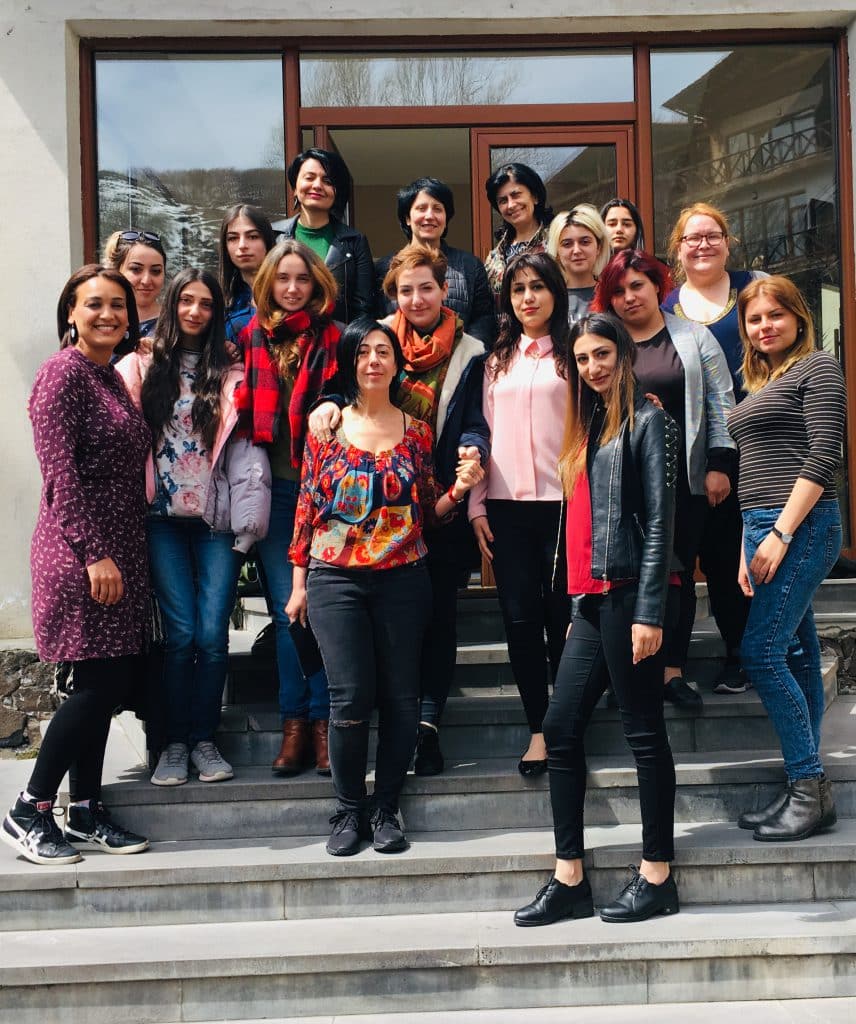
Last week, we organised a training in Armenia, together with Women in Europe for a Common Future (WECF). It is difficult for Armenian women to advance to leadership positions in politics, due to prevailing stereotypes and a relatively conservative society. This training was designed to give a group of talented young women the necessary skills they can use against these obstacles and help each other.
Political newcomers: wave of change in Eastern Europe?

For years, we have been talking about the rise of nationalism, conservatism and nativism in Europe. Could it be that a countermovement is now emerging there? A number of new leaders in Central and Eastern Europe may be showing a new trend. Want to know more? Read all about it in the piece by our Eastern Europe expert Marina Ohanjanyan!
First test for new government in Armenia
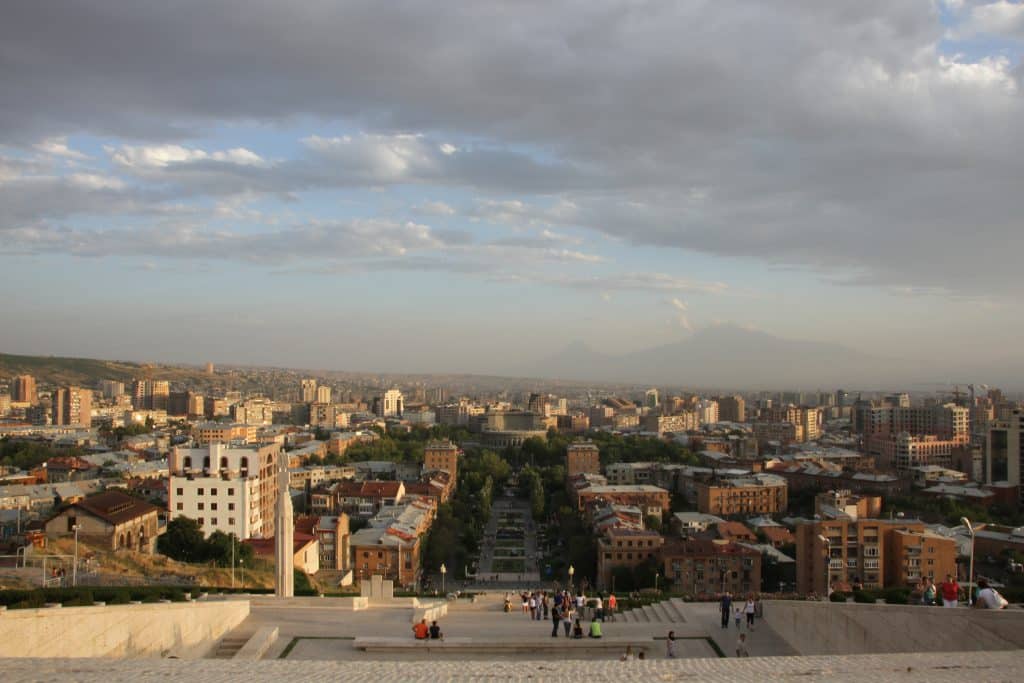
Last Sunday, local elections took place in Yerevan, the capital of Armenia. This would not normally be big news, were it not for the fact that these were the first elections since the peaceful revolution in the country earlier this year. AND the fact that some 40% of all voters live in the capital. This election was therefore seen as a first real test for the post-revolutionary government of Prime Minister Nikol Pashinjan. Especially since after taking office in May, following massive protests led by him, he set early parliamentary elections as one of his priorities. These, he said, will take place before May 2019. The Yerevan elections were thus a milestone because they would provide preliminary answers to two crucial questions: is the country indeed freer and more democratic than before, and can the newly-elected Prime Minister still count on the massive support of his people in the early parliamentary elections?
Political Café Armenia: A revolution of love and solidarity
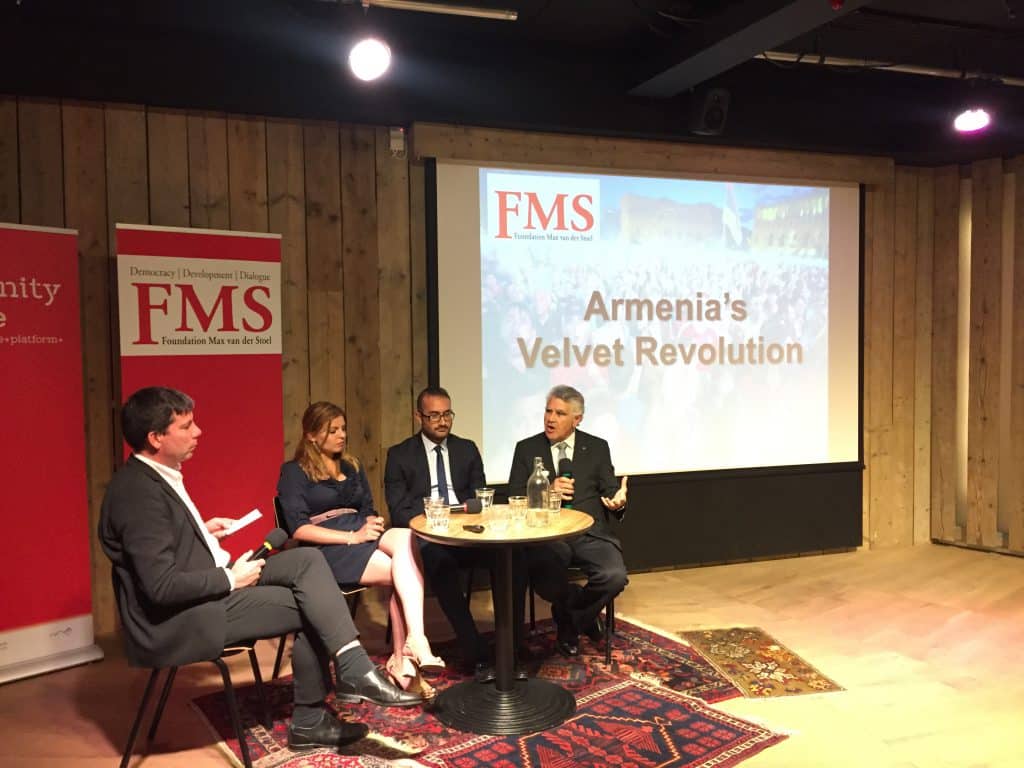
In the Netherlands, the recent political upheaval in Armenia has largely stayed out of the news. High time, therefore, to dig a little deeper into recent events. And what better place for that that a Political Café? In a well-filled Humanity House, the FMS organised a very interesting evening full of strong analyses, gripping stories and musical highlights on 25 June. Under the watchful eye of moderator Arjen Berkvens, the audience learned more about the revolution.
Armenia's Velvet Revolution
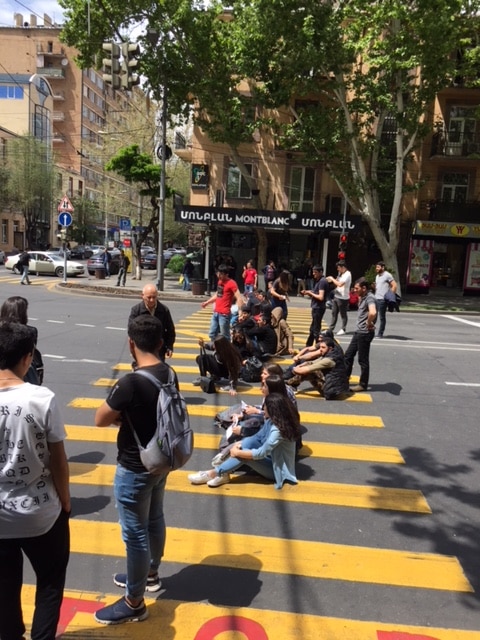
On 8 May, after weeks of mass protests, a new prime minister was appointed in Armenia: Nikol Pashinjan, the leader of the Armenian Velvet Revolution. Driving the protests were students and other young activists. The FMS asked one of those activists, 20-year-old Ozheni Avetisyan, to write about her experience of this revolution. Want to read Avetisyan article? Then click on read more.
Revolution in Armenia
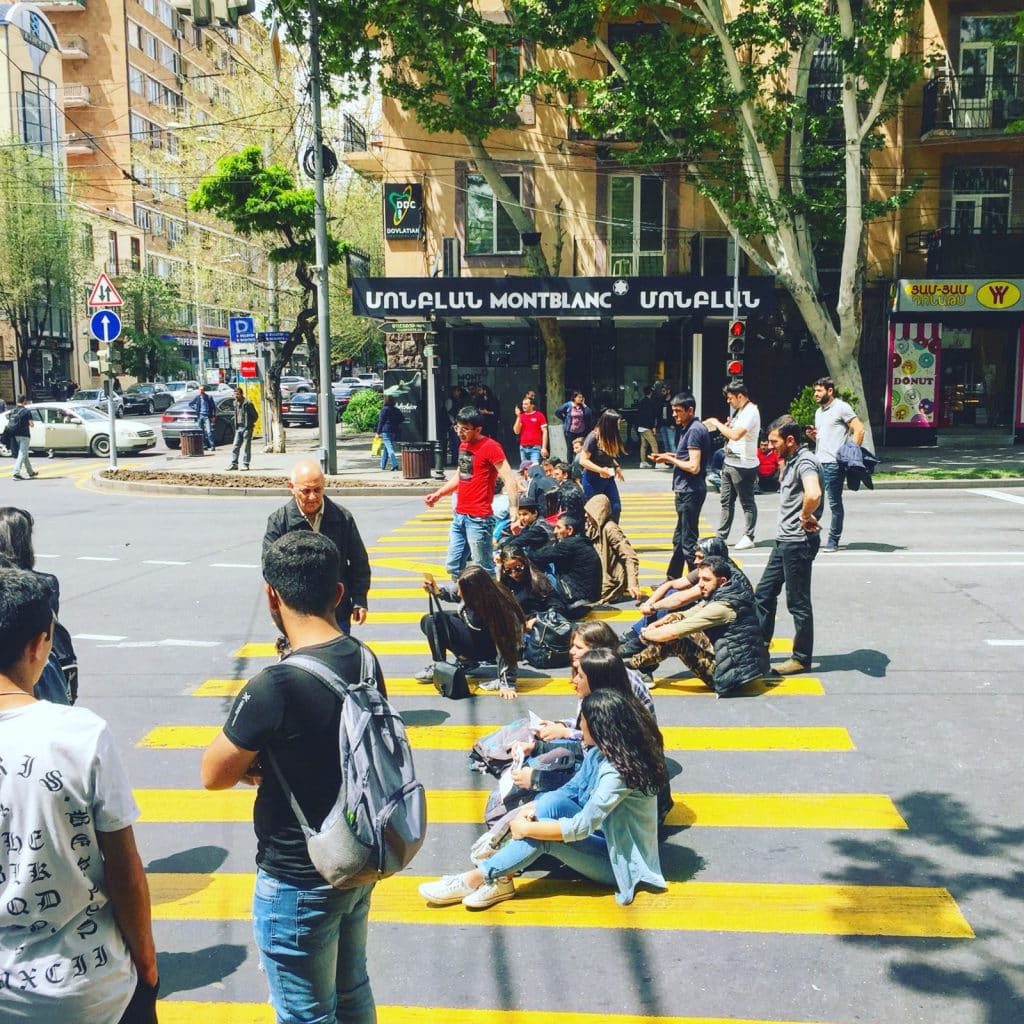
After 11 days of mass protests in Armenia against Prime Minister Serzh Sargsyan, the latter decided to resign on 23 April. After a brief euphoria and celebrations in the streets, however, it appeared that the ruling party had no intention of giving up power by doing so. Although it admitted not to put forward its own prime ministerial candidate, it would still consider which candidate it would support, although there was only one candidate: protest leader Nikol Pashinyan.

